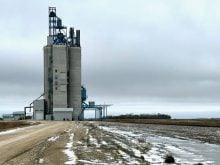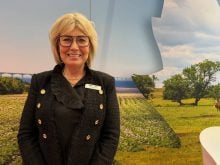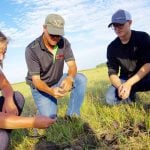MORDEN, Man. – An unusual partnership between Agriculture Canada and a Danish company may speed up the time it takes to get improved varieties of peas to farmers.
Earlier this year, the Morden research centre and Danisco agreed to exchange germplasm and share ownership of any new pea varieties that result.
“If they have material in early stages of development that I like, I can use it in making crosses or selections for Western Canada,” said pea breeder Tom Warkentin.
Danisco already has three varieties of peas registered in Canada and four more will be up for registration this February.
Read Also

Farmland ownership fires up Saskatchewan politicians
Saskatchewan politicians debate the enforcement of farmland ownership laws in the province.
Reg Kucey, director of the centre, said European pea varieties are popular with Canadian farmers because they are shorter and higher-yielding. However, the Morden varieties mature faster and have better disease resistance.
“So we’re putting the two of them together to have a short-season, short-statured crop with high yield and disease resistance. That’s quite a winner,” Kucey said.
Normally, it takes about 10 years to register a new variety. Kucey said the partnership could speed the process by five or six years.
User pay system
The exchanges are done free of charge. “If we don’t use (germplasm), it doesn’t cost us anything,” Kucey said.
That’s because the expenses are absorbed by Agriprogress, a private variety development company based in Morden.
Ottmar Philipp, who runs the company, said his payment will come if a variety becomes registered. Then he will receive part of the royalties. “So it is hopefully one day a positive scenario for us, while for Ag Canada, it is a positive scenario from day one,” said Philipp, who helped bring the two parties together.
He is the Morden research centre’s agent for peas in Europe and also works with Danisco breeders.
“It was logical to me to see and explore the possibility” of co-operation between the two parties, he said.
Philipp has operated Agriprogress since 1985. Before that, he was a plant breeder with the University of Stuttgart in Germany.














